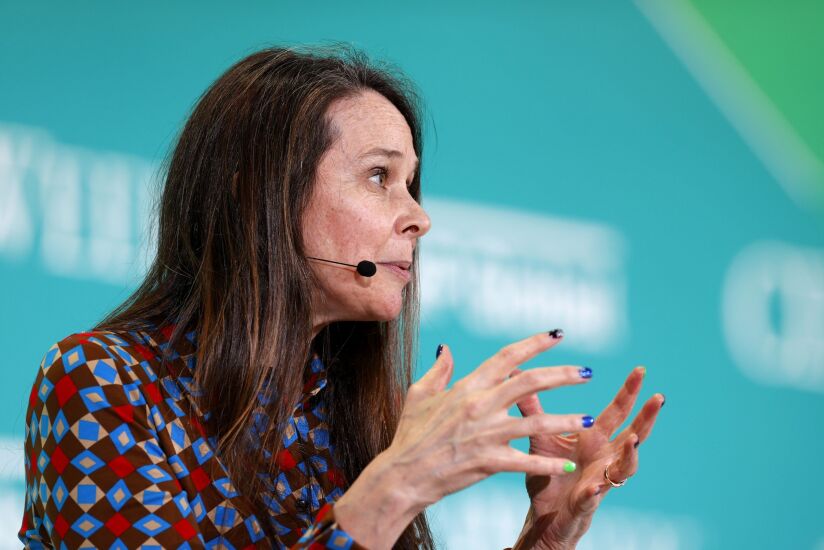In June's roundup of American Banker's favorite stories: Attempts to steal consumer data target a growing number of banks, credit unions secure deposits outflowing from other financial institutions, Citizens recruits 50 former private banking employees of First Republic and more.

The 20 top-performing banks with $2B to $10B in assets
Banks with assets between $2 billion and $10 billion of assets were ranked based on their three-year average return on average equity. For the top 20 banks in this asset category, the average of this figure came in at 21.11%. That soundly beat all the banks in this asset class, which posted 11.61% for this metric.
These top 20 institutions also held more core deposits compared with their total deposit base, reported a higher median return on average assets and posted a stronger efficiency ratio compared with the entire peer group.

10 banks alleged victims of ransomware attacks on file transfer software
On May 27, ransomware gang Cl0p started exploiting a zero-day vulnerability in Progress Software's product MoveIt to steal data from at least 91 organizations, including state and federal agencies and at least 10 U.S. banks and credit unions. Data compromised in the leaks included names, addresses, birthdates, Social Security numbers and more.
Progress

How credit unions gained some of the deposits banks lost
While U.S. banks lost 2.5% of their deposit base in the first quarter compared to the end of 2022, total shares and deposits increased 2.1% at credit unions, according to an S&P Global Market Intelligence analysis of call report data. This translates to credit unions picking up $39.85 billion of shares and deposits compared to the $481.79 billion that banks and thrifts lost, according to S&P Global.
Credit unions' growth in shares and deposits in the first quarter also outpaced growth in total loans and leases for the first time in two years, according to S&P. This followed a period of

Big commercial real estate downturn could sink 300+ banks: Report
More than 300 banks have enough
Barkham said the real estate advisory firm analyzed Federal Deposit Insurance Corp. data on the balance sheets of 4,800 insured banks to identify the banking sector's total exposure to commercial real estate. It then applied a hypothetical stress scenario in which property values and net operating incomes fell enough to result in a total loss.

These banks have lots of office loans. Here's why they say it's OK.
Much of the focus has been on smaller regional banks, which tend to have greater exposure to the commercial real estate sector than their larger counterparts.
At banks with between $10 billion and $100 billion of assets, commercial real estate loans accounted for 33.2% of total loans at the end of the first quarter, compared with 12.8% at bigger banks, according to a recent analysis by S&P Global Ratings.

Five issues to watch when Chopra goes to Congress
Chopra is a composed public speaker, having honed his skills at testifying as a former Democrat on the Federal Trade Commission during the Trump administration and as the CFPB's first student loan ombudsman. As CFPB director, he is required to appear before the Senate Banking Committee and House Financial Services Committee semiannually to report on the agency's efforts, and his testimony in the House marks the first time he testified since Republicans took the lower chamber after the 2022 election.

Citizens hires 50 ex-First Republic private bankers
The Providence, Rhode Island, bank added 50 senior private bankers and related support staff who previously worked at First Republic, which closed in May.
The hires expand the bank's wealth management business in Boston, Florida and New York and establish a presence in the San Francisco market, Citizens said in a press release.

Re-rebranding: TIAA Bank will again be EverBank following latest sale
TIAA Bank will rebrand as EverBank — the name that it used prior to its 2017 acquisition by New York-based retirement giant TIAA — following a pending sale that's expected to close later this summer.
The rebranding will be effective as soon as TIAA finalizes the sale of its Jacksonville, Florida-based bank unit to investors, said company spokesperson Michael Cosgrove, who did not provide an estimated cost for the rebranding.

Voice cards, video calls: 5 innovations in accessibility and banking
They are using technology to go beyond their responsibilities under Title III of the Americans with Disabilities Act, which prohibits discrimination based on disability in "places of public accommodation." JPMorgan Chase designed a branch that prioritizes the needs of customers who are deaf and hard of hearing, and introduced one of its key features into the bank's other locations last year. Regions Financial in Birmingham, Alabama, upgraded the wheelchair lift in its portable branch when it replaced its old vehicle in 2019. A challenger bank in Turkey developed a debit card that gives users a verbal heads-up on what they are about to spend.
These advances are significant because

Banks' climate disclosures are incomplete, misleading: Report
Delays in obtaining climate disclosures from banks' corporate clients and data providers are creating a lag effect in the industry's reporting of its financed emissions, the Environmental Defense Fund said in the report.
In some cases, banks are using climate data from the previous year in calculations that also rely on their most recent financial statements, the advocacy group found.





